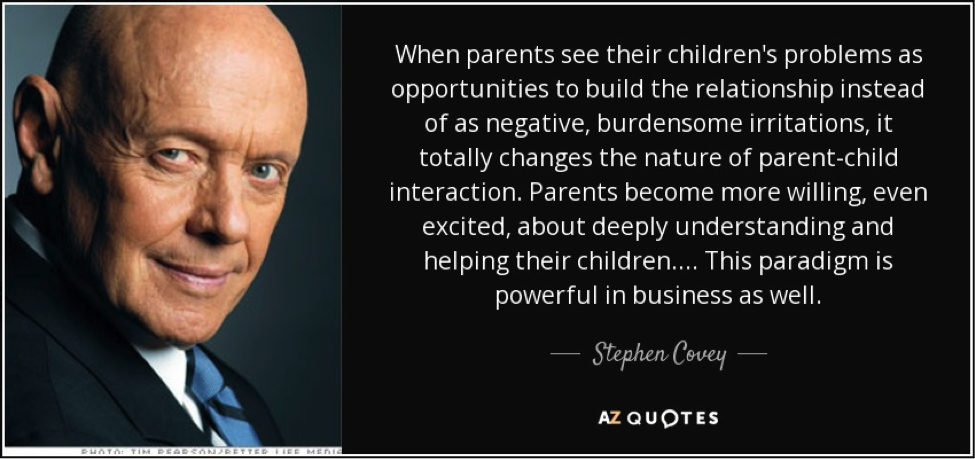Parenting is a Challenge.
Being a parent is probably the most challenging job you will ever have. When you have a daughter age twelve to thirteen, she is just beginning the individuation process. Individuation is a process through which a person begins to seek a sense of individuality to begin to consciously relate to being a human in this world with a quest to find “one’s true self.” This shift in consciousness is a time when questions of “Who am I?” and “What can I do to fit in better with my friends at school?” begin to emerge. Dr. Carl Jung described individuation as a process of self-realization and the discovery of one’s life purpose.
Also, we live in a world of social media and internet access which can add another layer of disconnect from family and increase concerns for parents. The process of individuation is normal and essential for the development of a strong sense of self and finding a life of meaning with purpose.
The family dynamics within the relationships between parents and siblings can have an impact on the individuation process making it difficult for youth. When your child makes choices that do not align with the family ideals and values, there can be ongoing miscommunications, increased anxiety, and withdrawn behaviors i.e. slammed bedroom door and desire for privacy and to be alone.
The youth will be successful in developing a sense of identity and get excited about setting goals for life while discovering personal strengths and gifts. Some of the desires of youth ages 12 to 18 years old, expressed by youth are as follows:
- Be clear about what you expect of me. Set curfews and know where I am at all times. Request that I check-in frequently. I don’t like discipline, but I know that it reflects your love for me.
- If you give me small freedoms, I will prove that I am capable of larger freedoms. Showing you that I can make right choices will build trust.
- Please allow me to listen to the music I like in my room.
- When I speak, listen to the feeling underneath the words.
- It makes me happy when I can have my friends over, and maybe we could schedule a slumber party or a pool party. My friends say I have “cool” parents.
- Encourage me to express my feelings in writing and verbally. It is also okay to be angry, but we need to talk it out because I am probably not angry at you.
- Support and encourage me to find a special talent (sports, art, dance, music, etc.)
- Another part of the individuation process is to gain experience to learn critical thinking and decision making. There is a strong need for developing a separate self and working on gaining personal independence to prepare for adulthood. As parents, we can do these four things to help the process.
- It is critical for parents to have ongoing open communication using both supportive and encouraging words.
- Listen with an open mind about some of the ideas that the youth is discovering.
- Ask questions about how they see friends as adding value by having a desire to work towards positive future goals and plans, i.e., accepting adult responsibilities.
- Maintain consequences which are related to disobedience, e.g., if the youth is an hour late the curfew could be set an hour earlier. Remain calm and firm.
However, when you are in the middle of an intense discussion with your daughter which includes raised voices, slammed doors, or direct disobedience you may feel like you need to reach out for help. “My daughter is out of control where can I send her for help?” Sometimes it helps to involve a third party who can remain neutral and assist the youth in the process of self-analysis and discovery. It is always good to consider both individual treatment and family treatment to assist with family dynamics, or any untreated mental health concerns.
There is always help available and finding out the best plan for your child and family can seem daunting. Over the past thirty years, while working in both private practice and with the local Departments of Social Services, I have seen parent-child relationships get through the valley of resistance and reach the mountaintop of understanding. Because there is a stigma associated with the words “counseling” and “therapy,” we recommend that the family consider using the word coach or mentor.
However, it should be noted that some of the adolescent behaviors that feel unbearable to the parents are normal central development issues in adolescence.
Some of these are as follows:
A. Identity
1. Youth struggles with:
- Defining values and beliefs
- Making career choices
- Determining a purpose in life
- Developing a positive self-image
2. Asks:
- Who am I?
- What do I like?
- What do I feel?
- What do I want to be?
B. Independence/Dependence
- Growing away from family
- Assuming control over their lives
- Being responsible for their actions
- Developing skills and confidence in coping with the complicated world.
C. Sexuality
- Embarrassed about changes in their bodies
- Sexual feelings and experiences affect self-esteem
- Sexual orientation issues can lead to pervasive sense of shame, confusion,
and isolation.
D. Self-Esteem
- Self-worth is frequently linked to physical characteristics and material
possessions, i.e., a brand of clothing, make-up, jewelry, etc.
If the parents note any excessive talk, erratic behavior, lack of eye contact, or overly withdrawn symptoms, it may be time to seek help from a mental health professional. You may also want to request a psychological screening or evaluation. Once the results of the psychological evaluation are completed and explained by the mental health professional, the family can discuss if there are any other options for services.
Some of the options could include continued weekly outpatient therapy and add an in-home counselor or mentor for the youth. There may be a need for intensive outpatient services should the other services are not effectual to see change. Intensive outpatient services can be a combination of individual and group treatment up to three times a week.
If the youth continues to break house rules and places self or others at risk of harm, then the need for inpatient treatment may be necessary for acute stabilization, and assessment by 24/7 observation.
Steven Covey said that we must give our children roots and then give them wings. I did better with the roots and struggled with the wings part. It is important that you are not afraid of asking for help. It is a sign of love when we ask for help with our children. There is what I call an ebb and flow to communicating with adolescents. Once you know when to say something and when to give the youth space, it helps.
Cinthia McFeature, Ph.D.
Bill McFeature, Ph.D.
References
Jung, C. G. (1953-1979). The Collected Works (Bollingen Series XX), trans. R.F.C. Hull: eds. H. Read, M. Fordham, and G. Alder, Princeton, N. J.: Princeton University Press, 20 vols.
McFeature, B. & Herron-McFeature, C. (2017). Integrated Health – HeartPath Practitioner Assessment and Intervention for the trauma-exposed patient. Melbourne, FL: Motivational Press.

